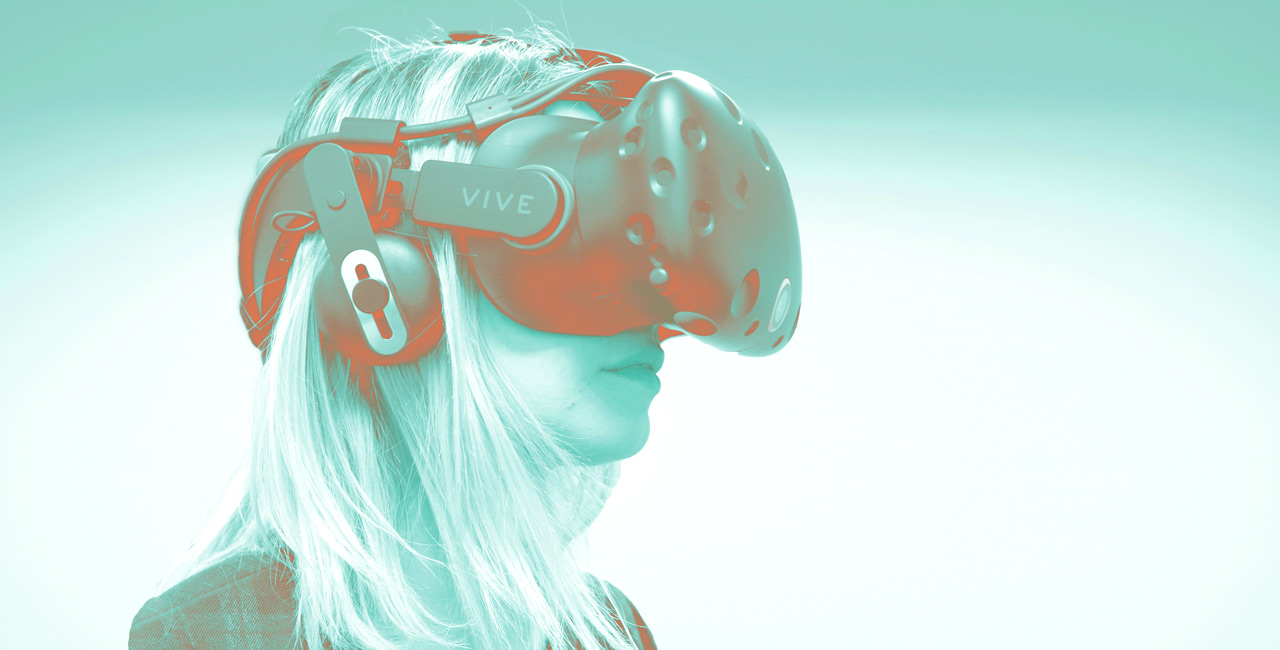Software company Case 3D donates virtual reality app for research
BY ROBIN CHENOWETH
A millennial walks through a hotel suite. Bed linens are elegantly arranged. Rose petals float in a bathtub. The balcony beckons with a sunset view. Birds chirp tranquilly in the background.
The person exploring this hotel isn’t really there. He’s outfitted with a virtual reality (VR) headset in a PAES Building lab on campus. Vanja Bogicevic, a graduate fellow in EHE’s Consumer Sciences Program, observes him.
When consumers interact with a space using VR, they engage in what Bogicevic calls pre-purchase daydreaming. “They create mental images in their minds — what they would do and how they would behave in this hotel room,” she said.
Serbian company Case 3D created software that lets people “test drive” not just hotels but rental properties, yachts and other spaces. The company donated the software to the college after Bogicevic, who is Serbian, approached them about doing research using the app. The donation is the first of its kind to Ohio State.
Bogicevic’s study compares consumers’ responses to VR hotel tours to those of people taking 360-degree digital tours — which don’t use headsets but allow viewers to pivot a room using a mouse or cell phone — and people looking at two-dimensional images of the rooms.
“Because they were able to teleport themselves visually into the world of the brand, their experience is much stronger and this motivates their intentions to visit the hotel in real life,” Bogicevic said.
The VR models are geared to millennials, who have “techno joy” instead of baby-boomer “techno fear,” said Miha Ambroz, head of marketing for Case 3D. “In five years, these people will become an economic force; marketing has to adapt to their buying preference,” he said.
Part of the appeal: The VR experience allows users to manipulate surroundings, turning on faucets, switching off lights, opening doors. And, it’s hyper-realistic.
Ambroz was “blown away” when he first used the software. “I remember looking at a vase on a table, and approaching it so that it’s in front of my face,” he said. “I know it’s not there but my brain does not believe it.”
Case 3D Cofounder and Chief Creative Officer Nebojša Zaklan traveled to Ohio State in April and spoke to students as a part of the Hospitality Management Association lecture series. “The field of applications for VR is endless,” he said.
Students should be flexible regarding the ways technology can impact their careers. “Success lies in embracing change and redefining yourself continuously,” he told the class.
“The collaboration with Ohio State gives deeper meaning to what we do — it’s about sharing what we’ve learned and empowering future generations to carve their career paths in bold, new directions,” Zaklan said.
Bogicevic will use the applications to teach consumer sciences students about digital marketing trends.
“We strongly believe the latest developments in virtual reality visualization have enormous potential to improve how people learn and make decisions in the real world,” said Case 3D Cofounder Danilo Micić.
“By donating our VR application, we wanted to give young and talented minds the opportunity to explore the untapped capacity of this medium.”

